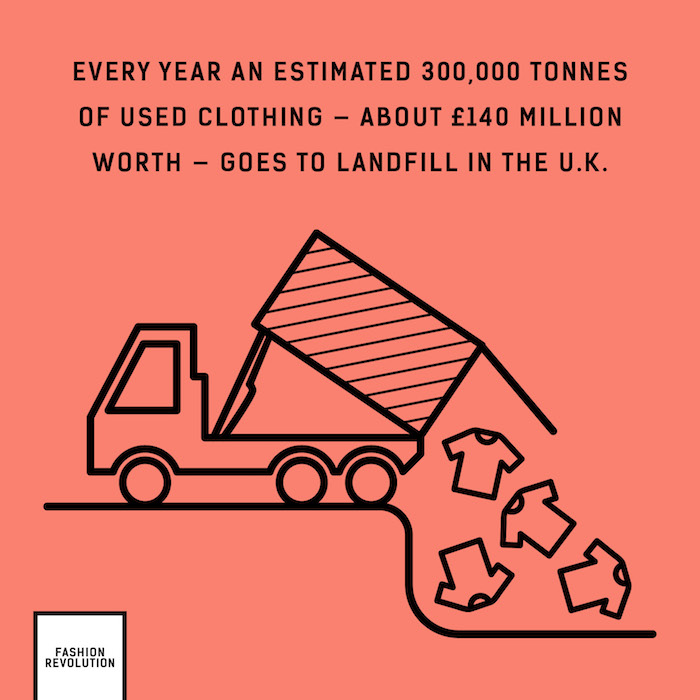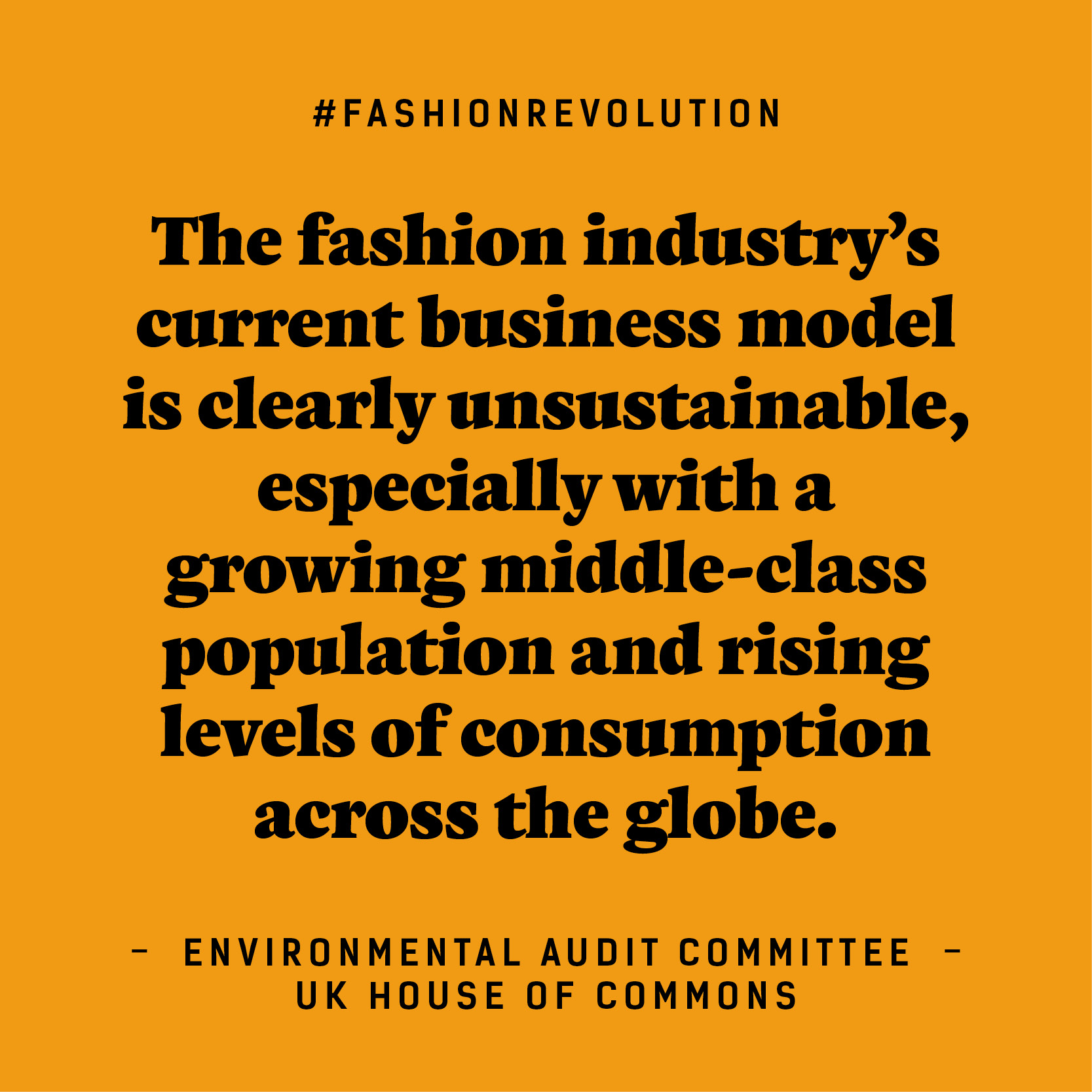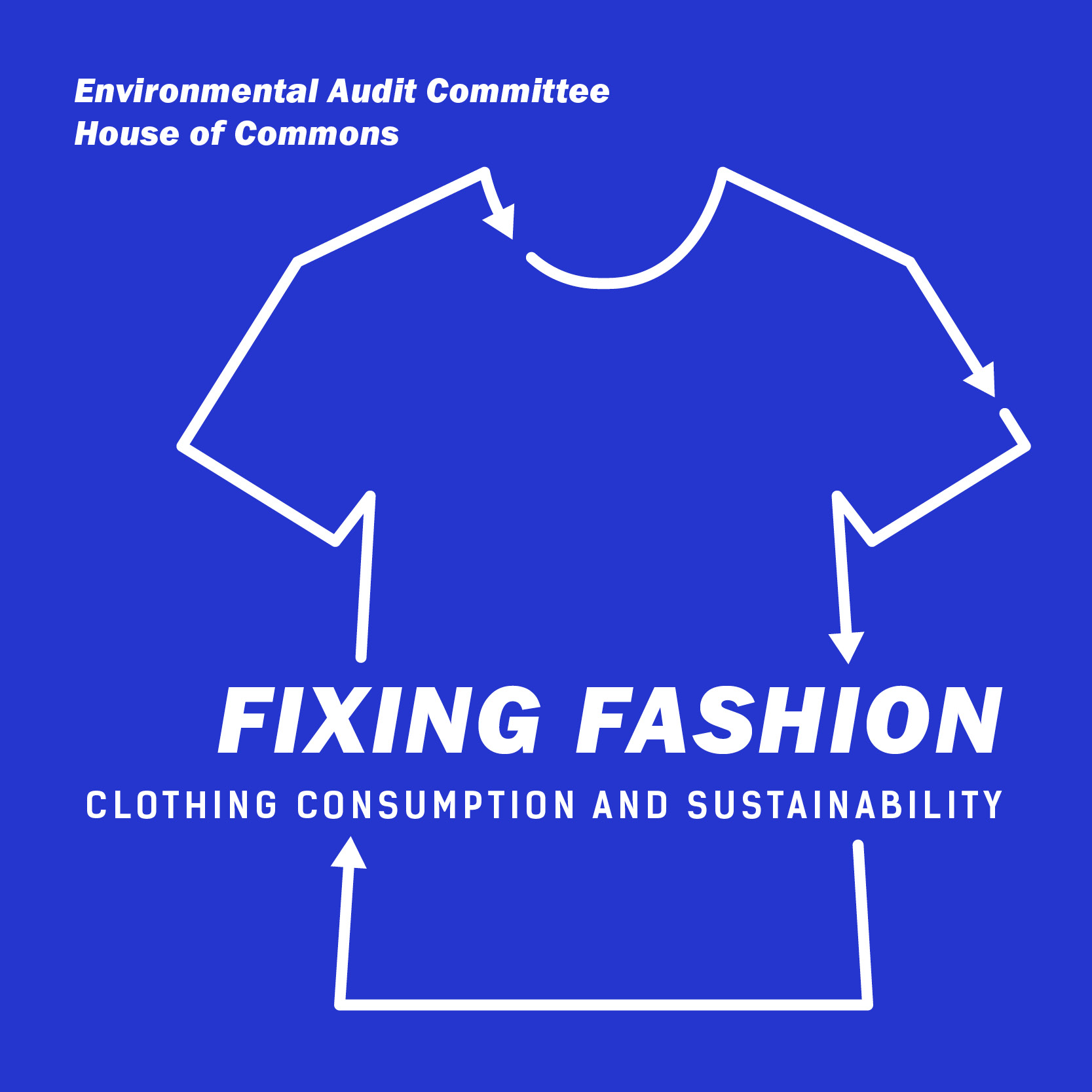Obsessive Consumption Disorder
Some may say that the environmental and ethical awareness of fashion has been circulating for a while now, but it is just not good enough. The issue is particularly attributable to the growing misconception of consumption, which has led me to believe; particularly the United Kingdom, are slipping into an obsession.
To disprove my view as an over exaggeration, I want to relate this blog to more official content. Thus, the facts and figures accompanying this blog have been taken from a 2019 House of Commons report – ‘Fixing Fashion: clothing consumption and sustainability’.
It is no surprise that fashion is one of the biggest industries in the UK, but what the report brought to my attention was the fact that the UK buys more clothes per person than any other European country. This high propensity to consume brings the growing concept of fast fashion to the forefront, which the report highlights is supporting over-consumption and generating unrestricted waste.
Firstly, over-consumption, in my view, is the main issue blocking the path to a future of fashion sustainability. The UK is consumption-obsessed. Fashion has never been so accessible for all societal members and this has resulted in everyone and anyone buying another item of clothing for any new social outing. We have essentially created an attitude of: wear once, bin it – repeat. This has created copious amounts of unrestricted waste, mainly coming from fast fashion practices.

As an Economics student, I believe, this overconsumption has come from needs and wants being confused and intertwined. We do not ever “need” an entire new outfit for every occasion – it is a want, an unnecessary want in fact. If we want to change this mindset, it has to come from a cultural revolution. This obsessive consumption disorder has essentially created a culture that consents constant clothing disposability. Why can’t we recycle old clothes, mix and match styles rather than making continuous, weekly purchases? Having said all this, obviously, even I have purchased some sort of fast fashion, but, now, I can honestly say I feel nothing but guilt when even browsing these mass-producing, fast-fashion championing retailers. I am not going to name names but I think you and me both know who the main culprits are. Ok the clothes are cheap, extremely accessible with forever changing trends, but can we really remain in this toxic cycle for much longer? No.
Yes, fast fashion, annually increases the number of fashion collections and offers lower prices, possibly making it more affordable; but, perhaps, if the detrimental impacts of this new business model were taught across early academia, we could move attention away from this damaging model by promoting sustainable fashion through more moderate consumption.
To change this aforementioned cultural misconception of ‘want, want, want’ and remove the UK from its’ consumption obsession we need to educate, advocate and renovate the fashion industry. Corporate social responsibility can no longer be voluntary but compulsory for all new and incumbent fashion retailers and aspiring designers. It is not and should not be marketed as positive public relations, this is a real issue – that, with time, is only getting worse – and needs to addressed.

Fashion is not frivolous nor disposable; it is art, it is creativity and should not be considered short-term. The attitude towards fashion has to change, perhaps even more backward-looking – we used to care for our clothes, love our clothes, not wear them once and throw them away. Next time you are planning an outfit, or thinking of buying an entire new wardrobe I urge you to ask yourself, ‘do I really need this?’. I guarantee you do not. Why not try upcycling old items of clothing, shop online through shared marketplaces; offering second-hand pieces, or make a trip to your local charity shop. I honestly believe if we change this cultural mentality, in the short-term, together, we could really make a difference by reducing consumption, and in turn diminish waste.
Some of you reading this, rightly so, will be saying that “it is down to the government to change legal requirements and for corporations to implement these, for the largest change to surface”. Ultimately, yes; this is the case, but if every single individual had this long-term outlook nothing, in any industrial sector, would ever change. We cannot underestimate our individual and collaborative ability to enforce fashion sustainability, whether it be through: reducing consumption, recycling/upcycling old garments or increasing consumer awareness – we cannot give up!









